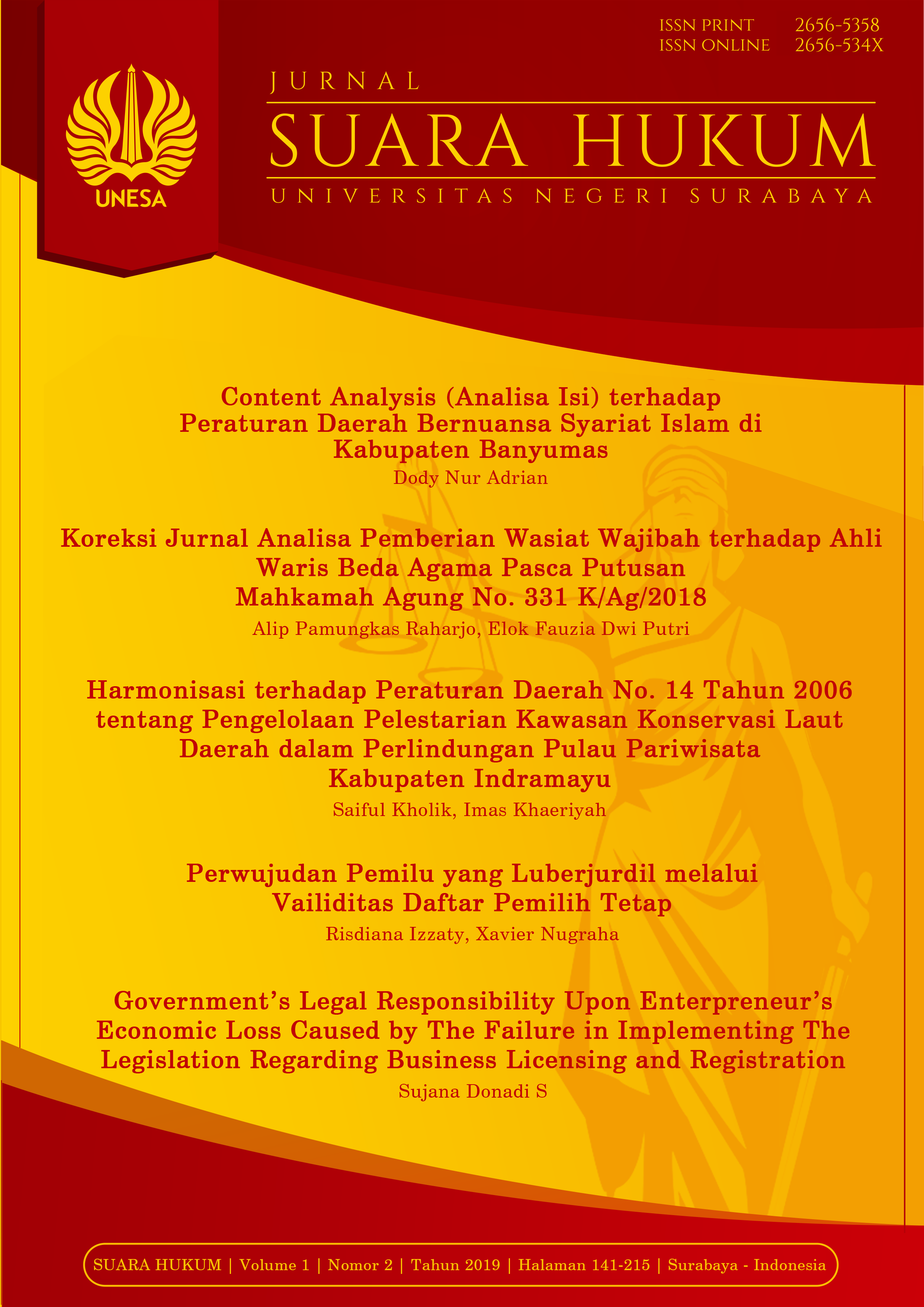Analisis Pemberian Wasiat Wajibah terhadap Ahli Waris Beda Agama Pasca Putusan Mahkamah Agung Nomor 331 K/Ag/2018
DOI:
https://doi.org/10.26740/jsh.v1n2.p172-185Keywords:
Non Moslem Heir, Legacy, Moslem Heir, The Supreme Court Decision Number 331 K / AG / 2018Abstract
In Article 171 letter (c) Instruction of the President of the Republic of Indonesia Number 1 of 1991 concerning Compilation of Islamic Law affirms that the rights of non muslim heirs to the inheritance of Islamic heirs do not obtain inheritance from the inheritor's inheritance. However, in its development because it felt unfair, the Supreme Court through The Supreme Court Decision Number 368.K / AG / 1995 provided a way for joint cooperation of different inheritance through a wasiat wajibah. But in its development, this provision was changed again by a landmark decision from the Supreme Court, namely through the Decision of the Supreme Court Number 331 K / AG / 2018 because there was a change in the value of justice in the community. The research method used normative research with constitutional approach, conceptual approach and case approach. This study aims to explain the rights of non muslim heirs to the inheritance of Islamic heirs before and after the Decision of the Supreme Court Number 331 K / AG / 2018. The results showed that prior to the Supreme Court Decision Number 331 K / AG / 2018, heirs of non muslim religions were given a share of inheritance in the form of a wasiat wajibah for ¾ of the inheritance inheritance. Post the Decision of the Supreme Court Number 331 K / AG / 2018, the amount of wasiat wajibah will change to ¼ from the inheritor's inheritance.
References
Buku
Alam, Andi Syamsu. (2008). Hukum Pengangkatan Anak Per?pektif I?lam.Jakarta: PT. Kencana
Alkostar,Artidjo. (2008). Dimensi Kebenaran Dalam Putusan Hakim, varia peradilan 281
Basyir, Ahmad Azhar. (2001). Hukum Waris Islam. Yogjakarta: UII Press
Dahlan,Abdul Aziz.(2015). En?iklopedi Hukum I?lam.Jakarta: Ichtiar Baru Van Hoeve
Hoecke,M.V. (2011). Legal doctrine: Which method(s) for what kind of discipline?.Oxford: HART Publishing
Jahar,Asep Saepuddin. (2013). Hukum Keluarga, Pidana dan Bisnis. Jakarta: Kencana Prenada Media
M.,Anshary. (2013). Hukum Kewarisan Islam Indonesia. Bandung: Mandar Maju
Manan,Abdul. (2008). Aneka Ma?alah Hukum Perdata I?lam di Indone?ia.Jakarta: PT. Kencana Prenada Media Group
Manan, Bagir. (1995). Kekuasaan Kehakiman Republik Indonesia. Bandung: LPPM Universitas Islam Bandung
Jurnal
Perundang-undang
Republik Indonesia. 1991. Instruksi Presiden Nomor 1 Tahun 1991 tentang Kompilasi Hukum Islam. Lembaran Lepas,Sekretariat Negara. Jakarta
Republik Indonesia. 2009. Undang-Undang Nomor 48 Tahun 2009 Tentang Kekuasaaan Kehakiman. Lembaran Negara No.157, Sekretariat Negara. Jakarta
Lain-lain
Q.S. al-Nahl
Downloads
Published
Issue
Section
License
Copyright (c) 2019 Jurnal Suara Hukum (JSH)

This work is licensed under a Creative Commons Attribution-NonCommercial 4.0 International License.
 Abstract views: 3127
,
Abstract views: 3127
, PDF Downloads: 3231
PDF Downloads: 3231




